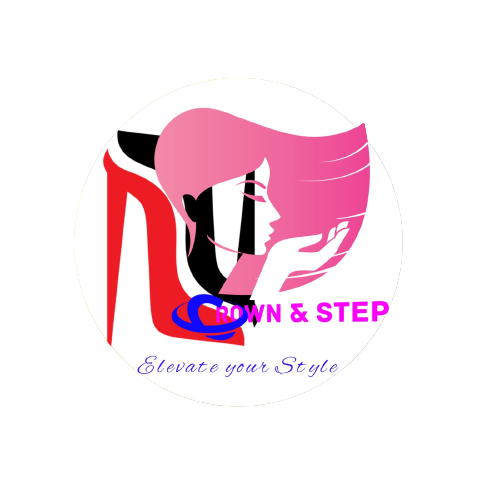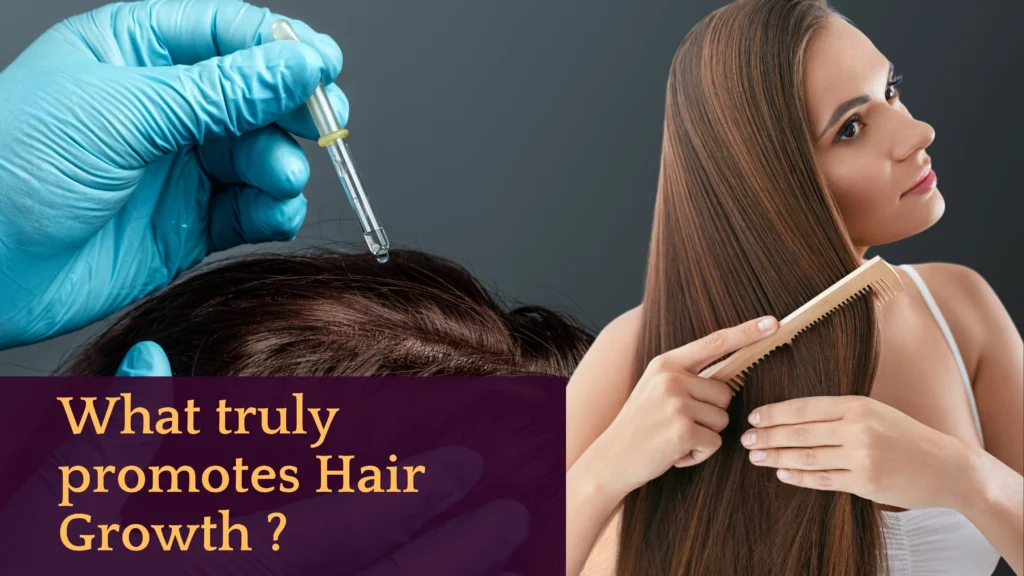Have you ever wondered if frequent trims really speed up your hair growth? Or if constant hat-wearing can lead to baldness? These questions swirl around, leaving many of us puzzled about what’s true and what’s just fiction. In a sea of hair care advice, it’s easy to get lost in myths that promise magical transformations. But the truth? Many of these hair growth claims are nothing more than tall tales. By separating fact from fiction, you can finally focus on what actually works for nurturing those locks and what’s simply hogwash. Let’s cut through the clutter and debunk the most persistent myths to give your hair the care it truly deserves.
Common Hair Growth Myths
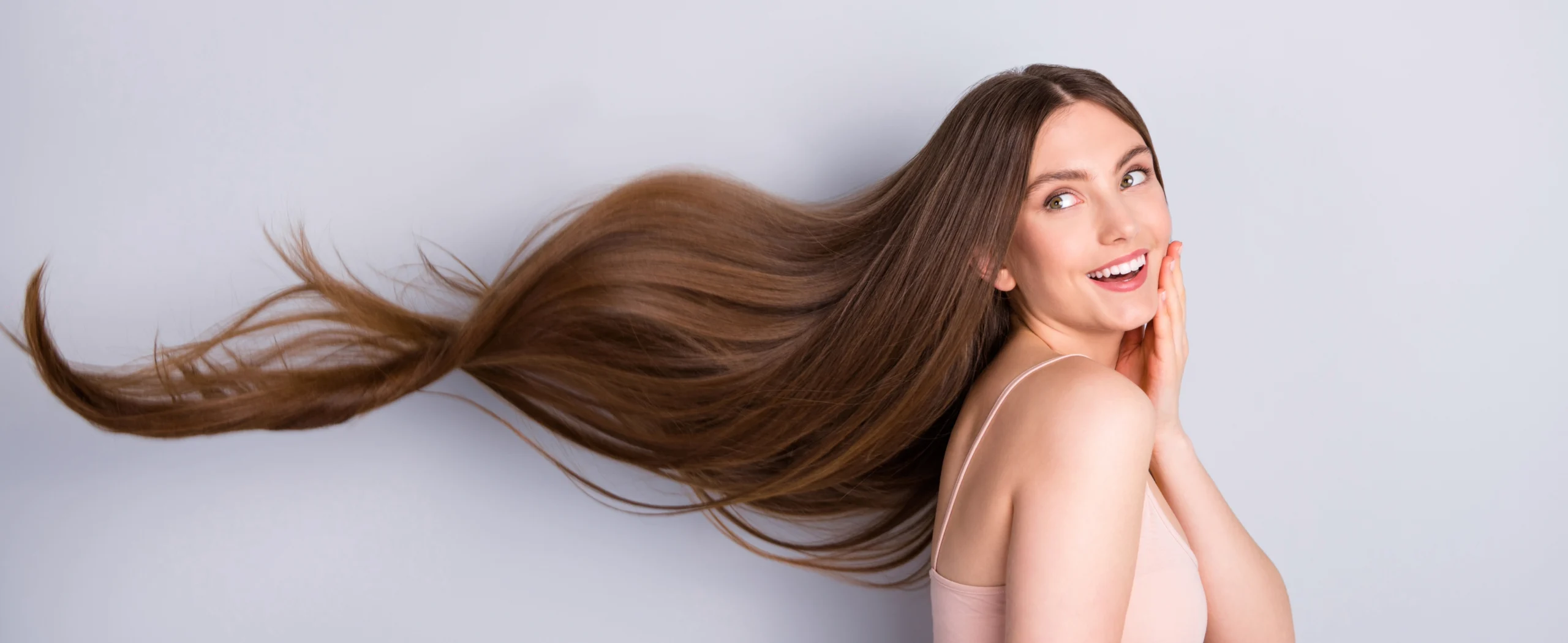
Hair care is surrounded by myths and old wives’ tales that many of us have heard since childhood. However, believing these myths can sometimes harm more than help. Let’s take a closer look at some common hair growth myths and uncover the truth behind them.
Myth 1: Cutting Hair Makes It Grow Faster
It’s a common belief that cutting your hair regularly will make it grow faster. This idea likely comes from a misunderstanding of hair structure. While trimming can remove split ends and make hair look healthier, it doesn’t impact the growth rate, as hair grows from the roots, not the ends.
Myth 2: Frequent Shampooing Causes Hair Loss
There’s a misconception that washing your hair often will lead to hair loss. But this isn’t true. Shampooing helps clean your scalp and hair by removing dirt and excess oil. What matters more is using a shampoo that suits your scalp type, and not how often you use it.
Myth 3: Hair Loss Is Only a Male Problem
Hair loss is often seen as a male issue, but it also affects women significantly. Factors like hormonal changes, genetics, and health conditions can lead to hair loss in both genders. Women might experience thinning hair rather than complete baldness, but that doesn’t mean it’s less impactful.
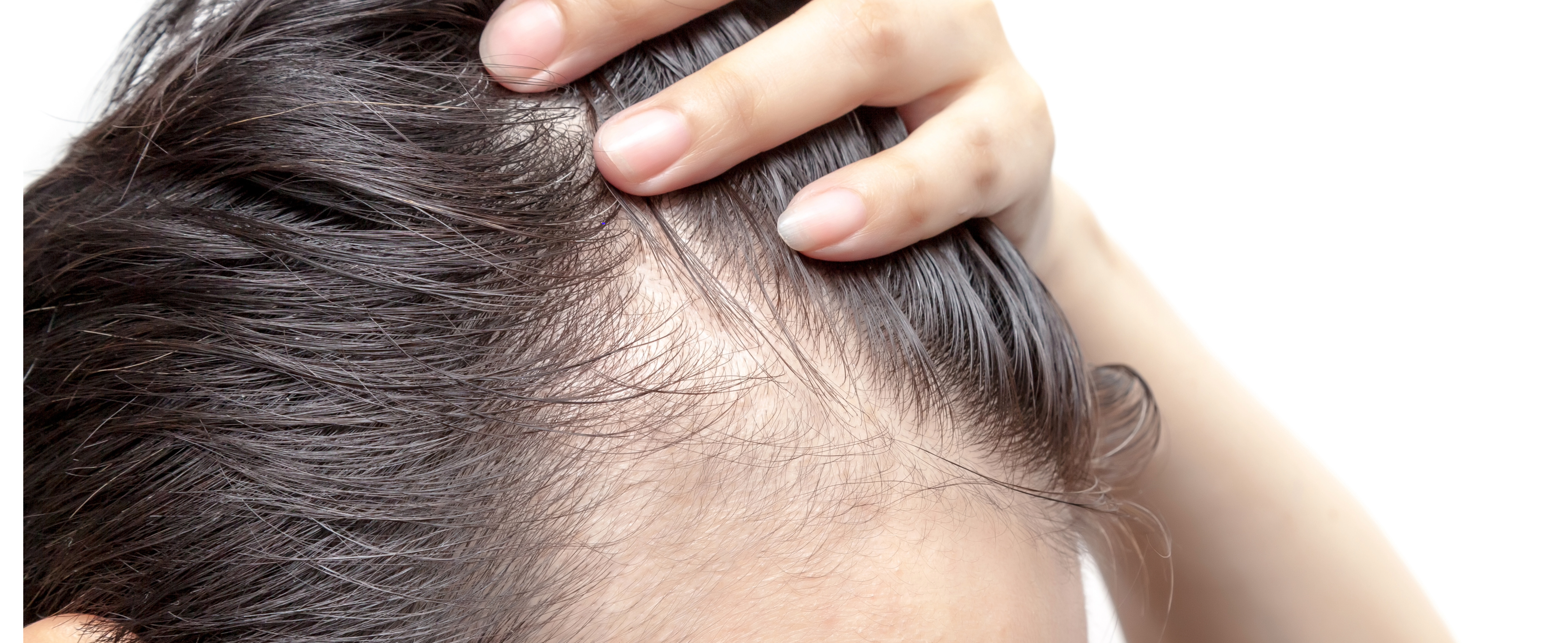
Myth 4: Hats Cause Hair Loss
The belief that wearing hats leads to hair loss is unfounded. Unless your hat is so tight it’s actually pulling on your hair, it’s not going to cause baldness. Hair loss occurs at a genetic or hormonal level, not due to the pressure of a hat.
Myth 5: Oily Hair Falls Out More Often
Oily hair can feel greasy and limp, but it doesn’t mean it’s more prone to falling out. In fact, sebum, the oil produced by your scalp, can provide protection. However, balancing oil with a proper hair care routine is important to keep your scalp healthy without over-stripping it of natural oils.
Understanding the reality behind these myths can help you take better care of your hair and make informed decisions about your hair care routine. Remember, everyone’s hair is different, and what works for one person may not work for another.
Scientific Facts About Hair Growth
When it comes to hair growth, there’s a world of science beneath those strands. Understanding the biology behind hair growth can help separate fact from the myths floating around. Here’s a peek into how exactly our hair grows and what factors might influence it.
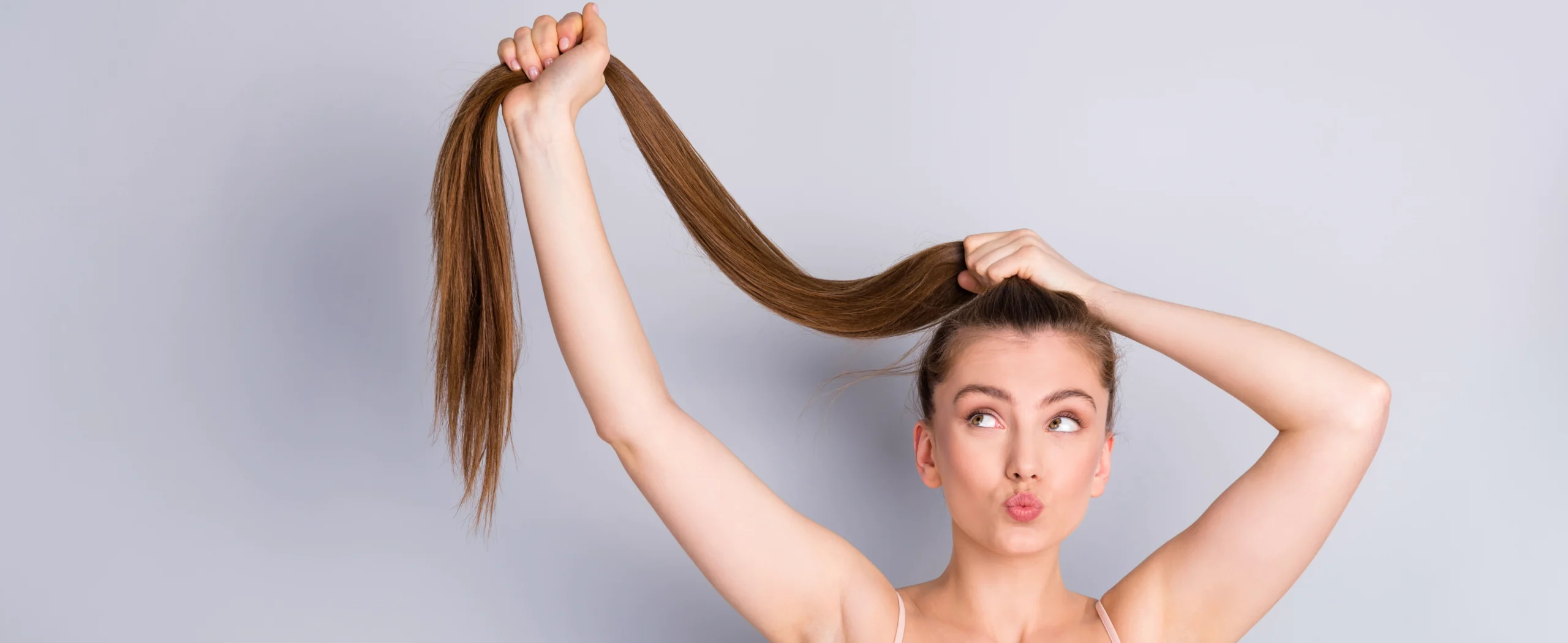
Understanding Hair Growth Cycles
Did you know each strand of hair on your head is going through its own cycle? This cycle is where the magic happens, and it’s as regular as clockwork.
- Anagen Phase (Growth Phase): This is where the real action is. About 90% of your hair is in this phase at any given time, where it actively grows for three to five years. It’s like your hair’s workout session.
- Catagen Phase (Transition Phase): Ever taken a break after a workout? That’s this phase. It’s short, lasting only about 10 days, as hair growth winds down.
- Telogen Phase (Resting Phase): This phase is all about taking it easy. Your hair rests for about three months before it falls out to make way for new hair. It’s like recharging your batteries.
Factors Affecting Hair Growth
There’s a saying that goes, “Genes load the gun, but lifestyle pulls the trigger.” When it comes to hair growth, this couldn’t be more true.
- Genetics: Just like eye color, your hair growth pattern is largely inherited. If your parents had thick hair, chances are you might too.
- Diet: Think of your body like a car. Put in good fuel, and it runs smoothly. Diets rich in vitamins and proteins support healthy hair growth.
- Health: Conditions like hypothyroidism or even stress can slow down the hair cycle. It’s like when a good playlist suddenly stops playing—it affects the mood.
- Lifestyle: Smoking and excessive alcohol can dim your hair’s natural shine. They’re like the party crashers your hair definitely didn’t invite!
Knowing these factors arms you with information to make conscious choices about your hair health. Each strand is a testament to a complex process influenced by how you treat your body.
Debunking Myths with Expert Opinions
It’s time to clear the air about hair growth myths that have been floating around for far too long. Let’s not accept every bit of advice we hear. Instead, let’s rely on expert opinions to get to the truth. Whether it’s about washing your hair every day or the impact of your diet, knowing the facts can make a world of difference to your hair care routine.
What Dermatologists Say About Hair Care
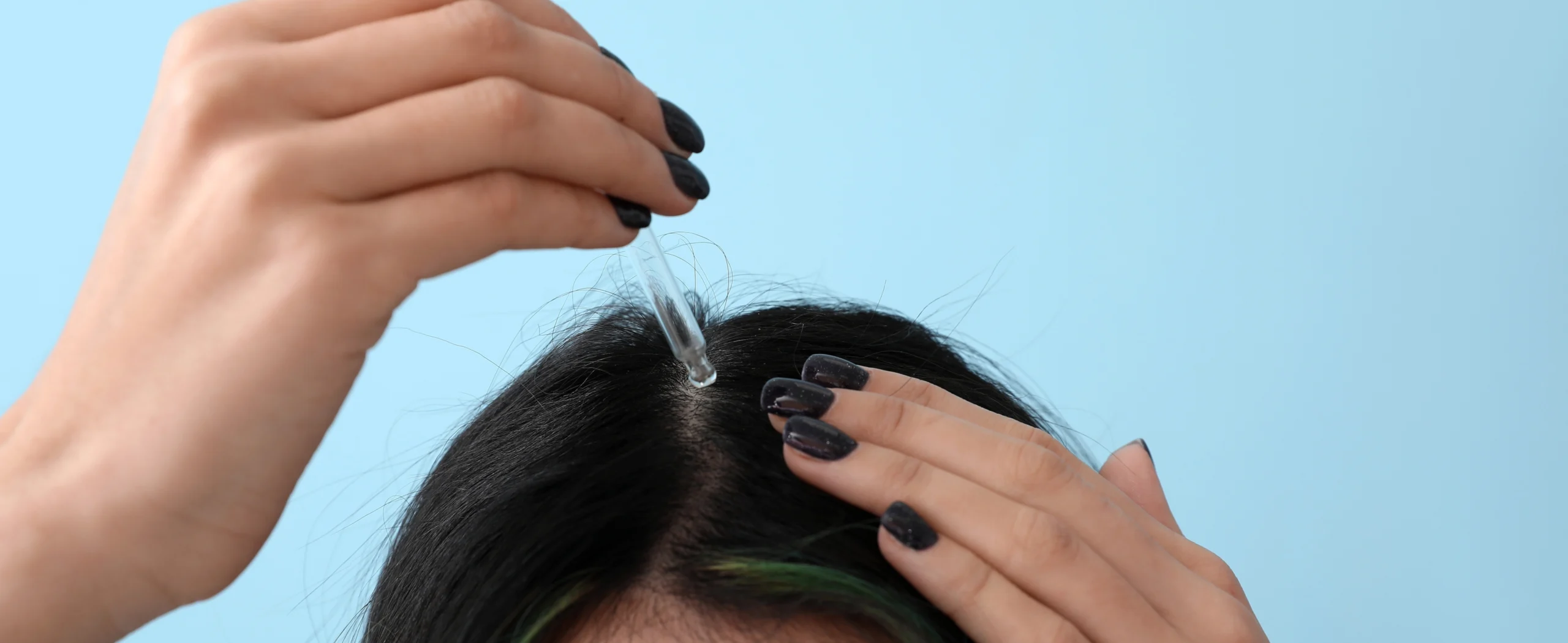
Dermatologists across the board agree that many common hair care practices are based on myths rather than facts. Do you wash your hair daily? Many fear it’ll damage their locks, but experts suggest that shampooing frequency should actually depend on your hair type and lifestyle. Greasy-scalped teens might need daily washes, while those with dryer hair can go longer between washes.
There are a few general pointers dermatologists often highlight:
- Washing with cold water doesn’t improve shine – Your hair’s shine comes from natural oils, not the water temperature.
- Brushing 100 times a day – Please don’t! This can cause breakage and split ends. Just enough brushing to stimulate your scalp is ideal.
- The more the merrier with shampoo – Less is often more. A small amount of quality shampoo suited to your hair type is better than overloading on lather.
By understanding what really matters in hair care, you can ditch practices that aren’t helping and adopt those that are scientifically backed.
The Role of Nutrition in Hair Health
Nutrition plays a vital role in maintaining healthy hair. Think of your hair like a garden; without the right nutrients, it simply won’t thrive. Foods rich in vitamins and minerals lay the groundwork for luscious locks.
Here’s a quick list of nutrients that are essential for hair health:
- Vitamin D, Iron, and Vitamin C: These are often recommended as supplements for hair growth. They not only support strong hair but also bolster your immune system, which indirectly impacts your hair health.
- B Vitamins: Especially Vitamin B6, folic acid, and Vitamin B12. They are crucial for the formation of red blood cells which carry oxygen and nutrients to the scalp and follicles.
- Protein, namely Keratin: The major component of your hair shaft, making protein a key player in the production of healthy hair.
- Healthy Fats and Carbohydrates: These are necessary for cell growth including hair cells.
Incorporating foods like eggs, spinach, and fatty fish can support your hair from the inside out. Remember, a balanced diet isn’t just about keeping you healthy—it’s also about maintaining your crowning glory.
Practical Tips for Healthy Hair Growth
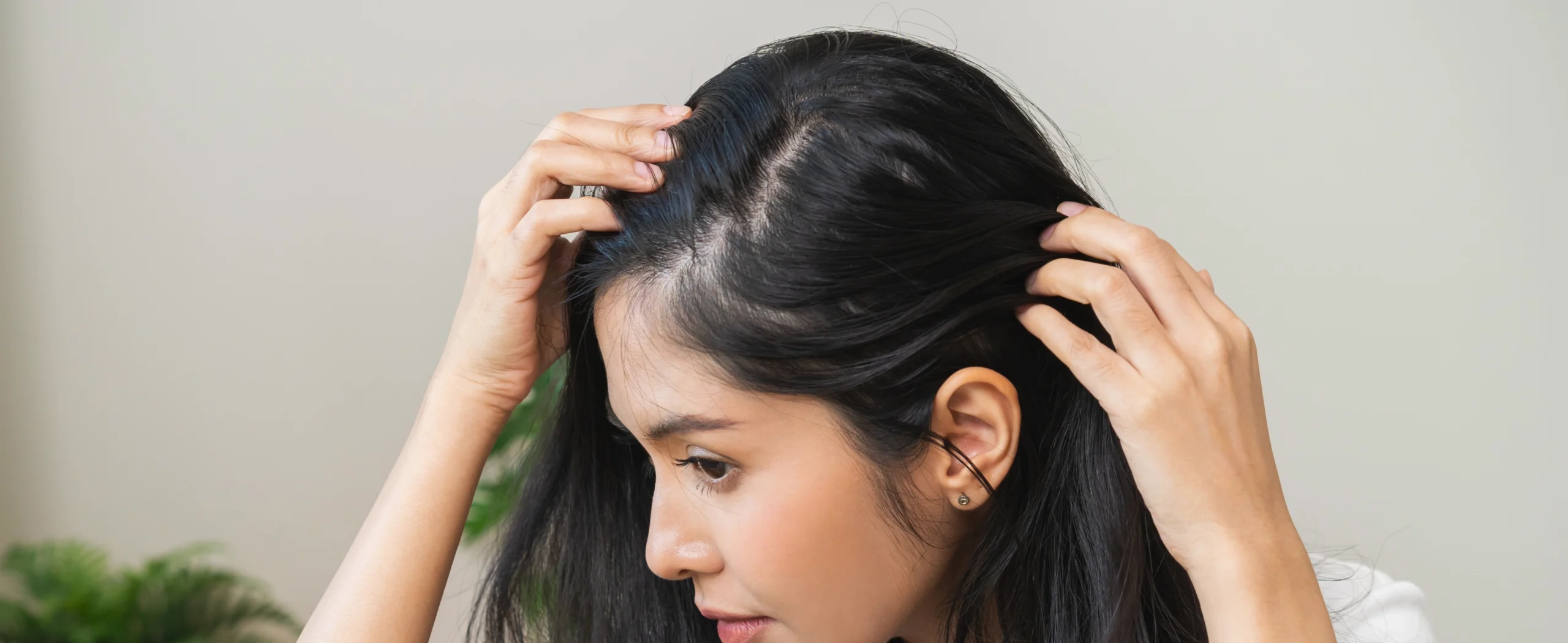
Growing healthy hair isn’t just about avoiding split ends or using expensive products. It’s a commitment that starts from within and extends to everyday habits. Let’s dive into some practical advice that will put you on the right path.
Maintaining a Balanced Diet
We all know the saying, “You are what you eat.” This couldn’t be truer when it comes to hair growth. A balanced diet is essential for maintaining healthy hair. Here are some key nutrients and their sources that can give your hair a boost:
- Protein: Hair is mostly made of protein, so it’s crucial to get enough. You can find it in eggs, fish, and lean meats.
- Biotin: This B vitamin is a known friend of your hair. Nuts, seeds, and whole grains are some excellent sources.
- Omega-3 Fatty Acids: They keep your scalp healthy, which is the foundation for strong hair. Include foods like salmon and flaxseeds in your diet.
- Iron: Iron deficiency can lead to hair loss. Add leafy greens, lentils, and red meat to your meals.
- Vitamins A and C: These help your body produce sebum, a natural conditioner for your hair. Carrots and oranges are great picks.
- Zinc: Essential for hair tissue growth and repair. Grab some pumpkin seeds or chickpeas to fill this need.
Incorporate these nutrients into your daily diet, and you’ll be nurturing your hair from the inside out!
Best Hair Care Practices
Caring for your hair doesn’t have to be complicated. With a few simple strategies, you can make sure your hair stays healthy and vibrant:
- Know Your Hair Type: Tailor your care routine to match your hair’s needs. Is it oily, dry, or somewhere in between?
- Wash Wisely: Over washing can strip hair of natural oils. Use shampoo only as needed, perhaps every 2-3 days.
- Conditioning Counts: Always use conditioner, and apply it primarily to the ends of your hair.
- Protect from Heat: Limit the use of straighteners and curlers. When you do use them, don’t skip a heat protectant.
- Regular Trims: Cutting your hair every 6-8 weeks helps prevent split ends and keeps it looking fresh.
- Scalp Care: Massage your scalp regularly to stimulate blood flow and encourage growth.
These steps, when followed consistently, can keep your hair looking its best without a lot of fuss.
When to Seek Professional Help
Sometimes, changes in hair can signal underlying health issues. How do you know when it’s time to see a pro?
- Excessive Shedding: If your hair is falling out in clumps or you notice balding patches, it’s not normal hair fall.
- Sudden Change in Texture: A rapid shift can hint at health conditions that needs medical attention.
- Persistent Dandruff or Scalp Itchiness: Could indicate an infection or other scalp issue.
- No Improvement with Good Habits: If you’ve been following healthy hair habits with no noticeable results, a professional may help identify the cause.
If you see any of these signs, contacting a dermatologist or trichologist can be a wise move. Remember, your hair often reflects your overall health, so being attentive can lead to early detection of potential issues.
Conclusion
Understanding and embracing facts over myths in hair care not only debunks common misconceptions but empowers you to take control of your hair’s health. Frequent trims may keep your ends tidy, but they won’t speed up growth. Shampooing doesn’t lead to hair loss; in fact, clean follicles may promote healthier hair. Genetics often play a role, but solutions exist for everyone.
Stay curious and rely on science to guide your hair care decisions. Consider what your hair truly needs rather than following trends without proof. Share your thoughts or experiences with these myths, and let’s continue uncovering truths together.
